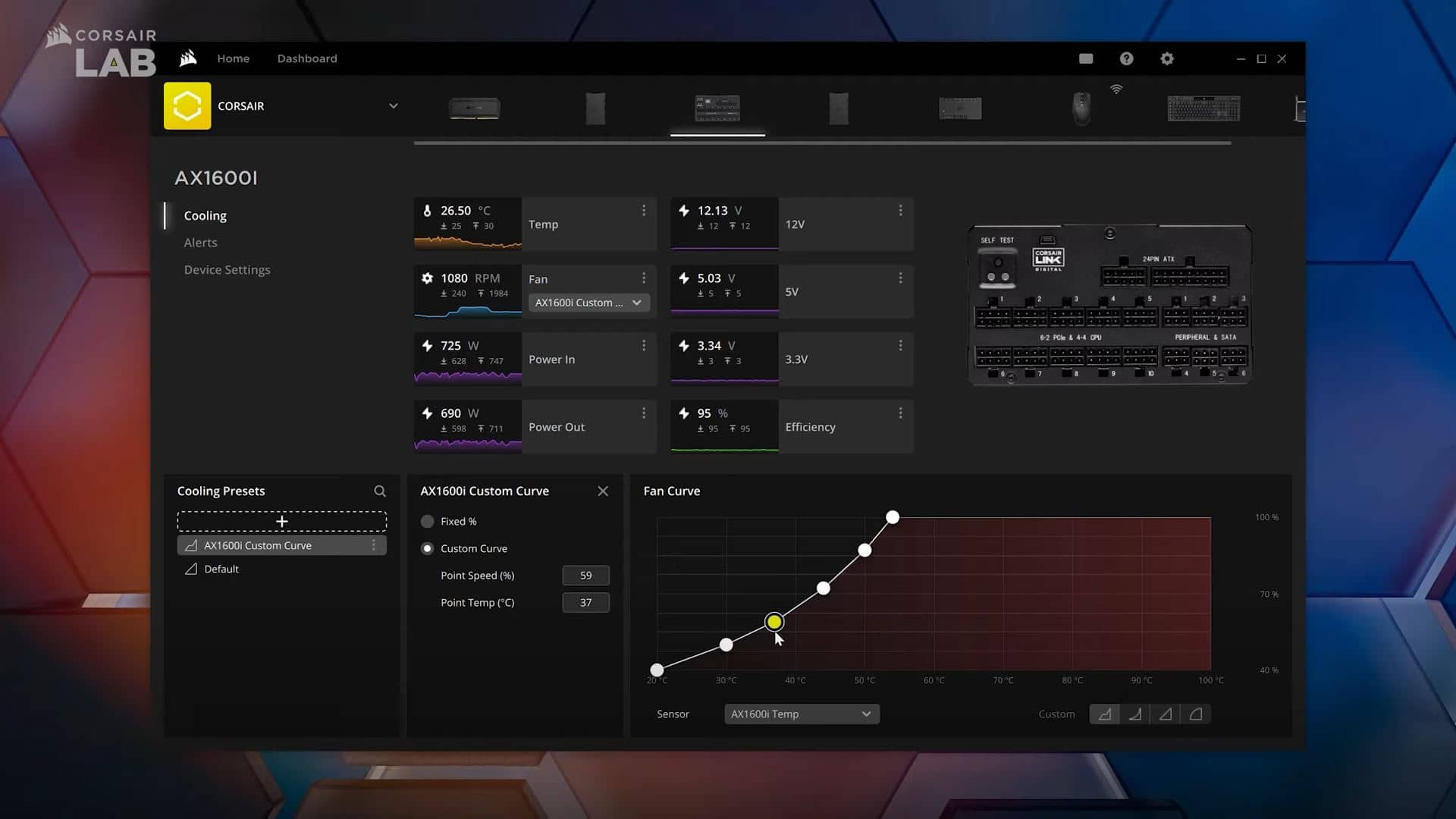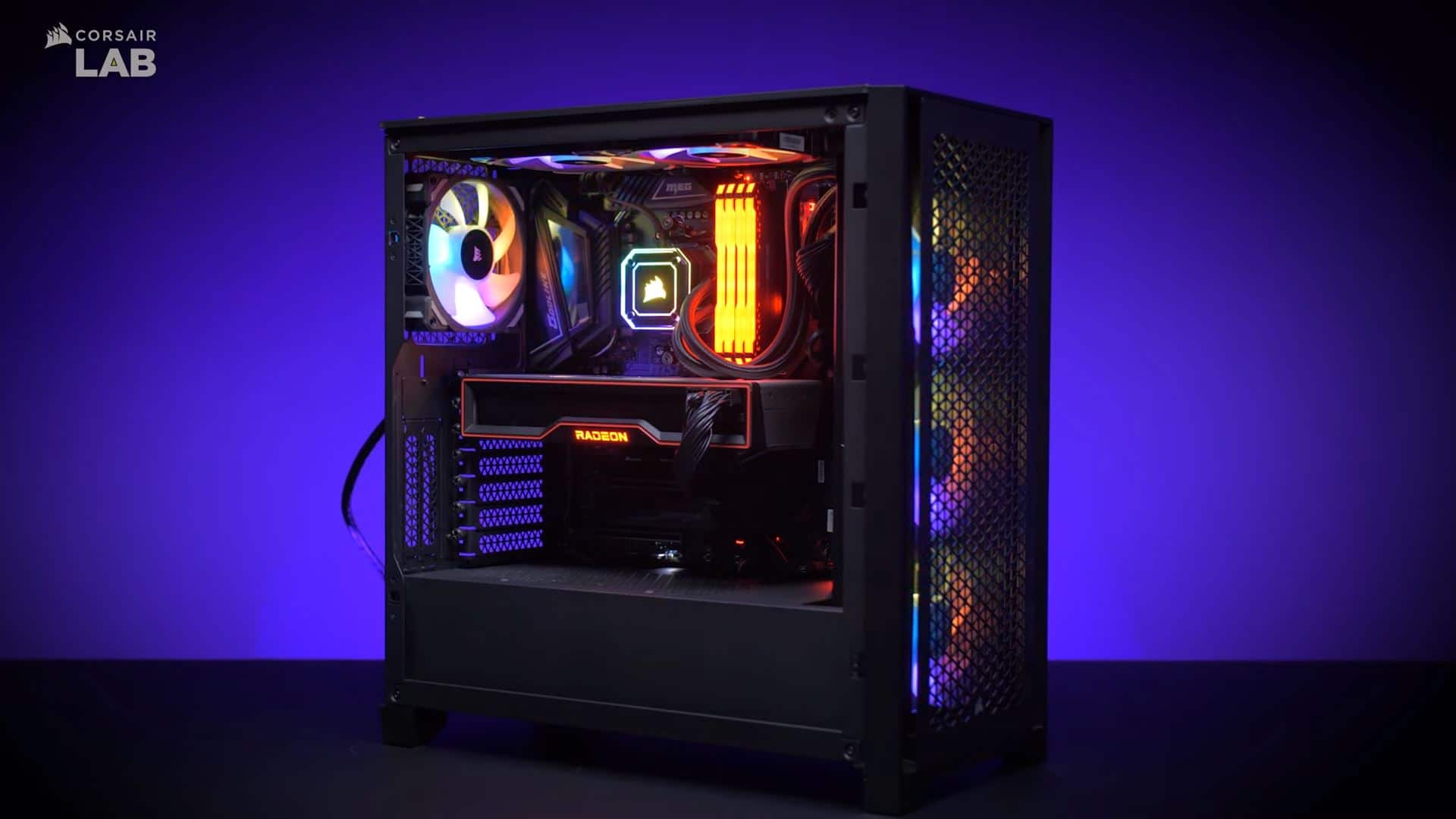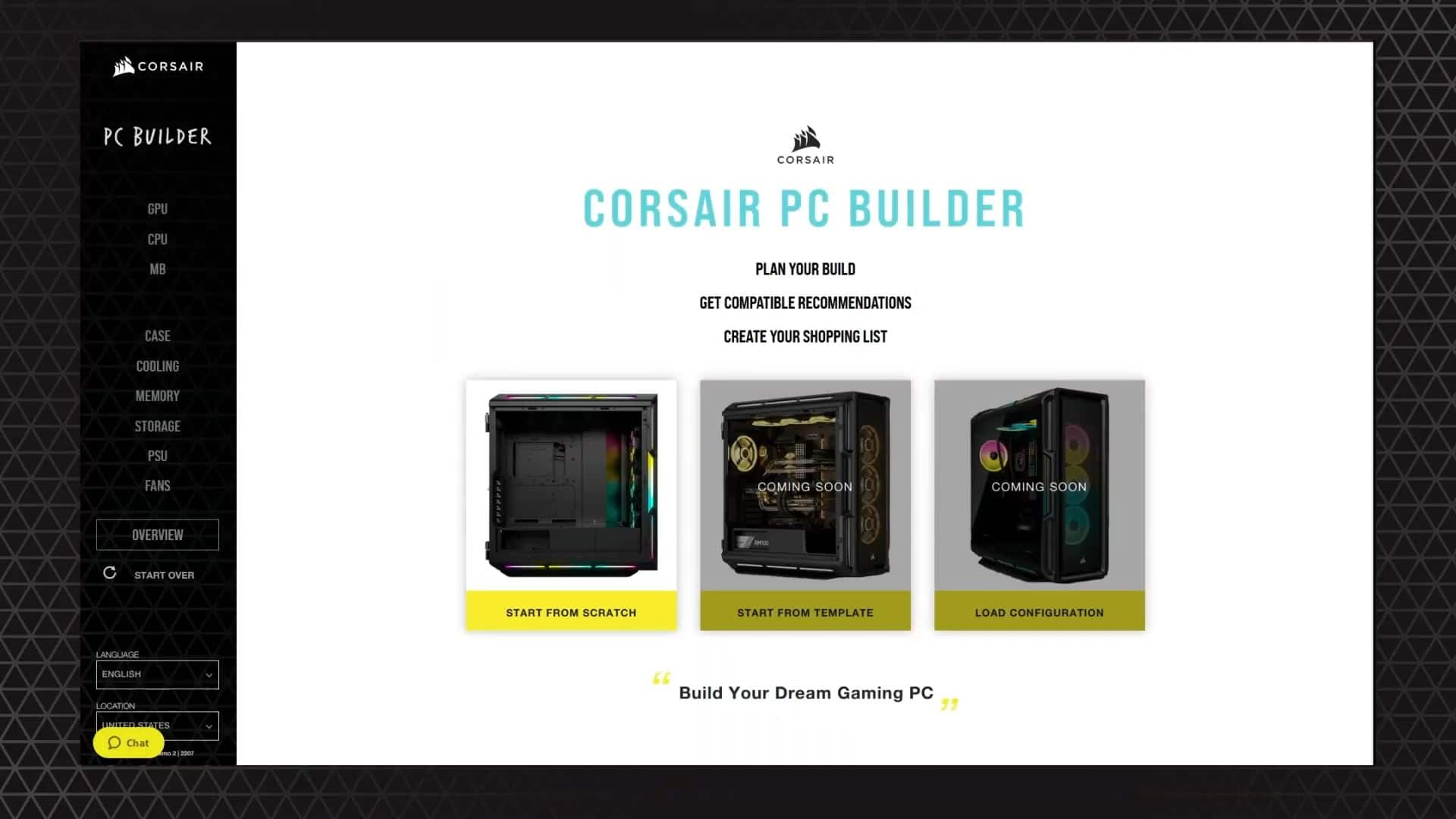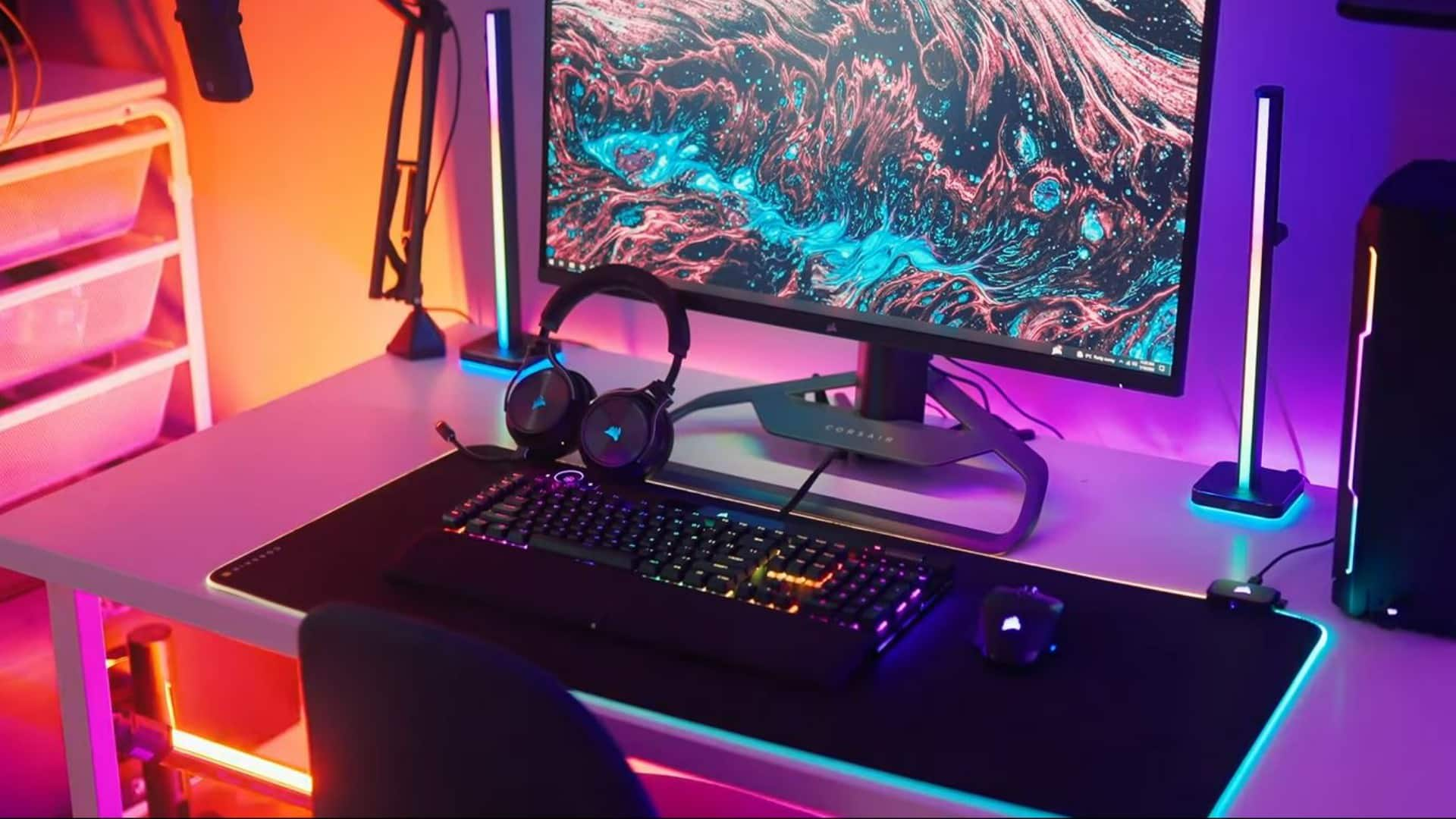BUILDERS GUIDE
SIZE AND ORIENTATION
FORM FACTOR
Will it fit your case?
MODULARITY
Fewer cables, cleaner build.
What influences the build experience when it comes to power supplies?
Size, orientation, colors, ports, cables, RGB, extensions, and more.
There's a lot to consider, so let's define the basics:
Size
Most cases (not counting the smallest small form-factor cases) will support an ATX form-factor PSU. This defines the height and width of the power supply unit, but not the depth. Make sure the depth of the power supply unit matches your choosen case. If you aren't sure, you can use out PC Builder to search for size-compatible PSUs for you case.
Orientation
You can turn your PSU to have the intake fan pointing up or down. In general, it is better to have the fan facing down (out of the PC case) so that you're drawing cooler air in - as long as the intake is filtered. If there's a lot of dust of other particles in the air (such as in a home with shedding pets), it's still ok to face it up if you have solid airflow inside the case.
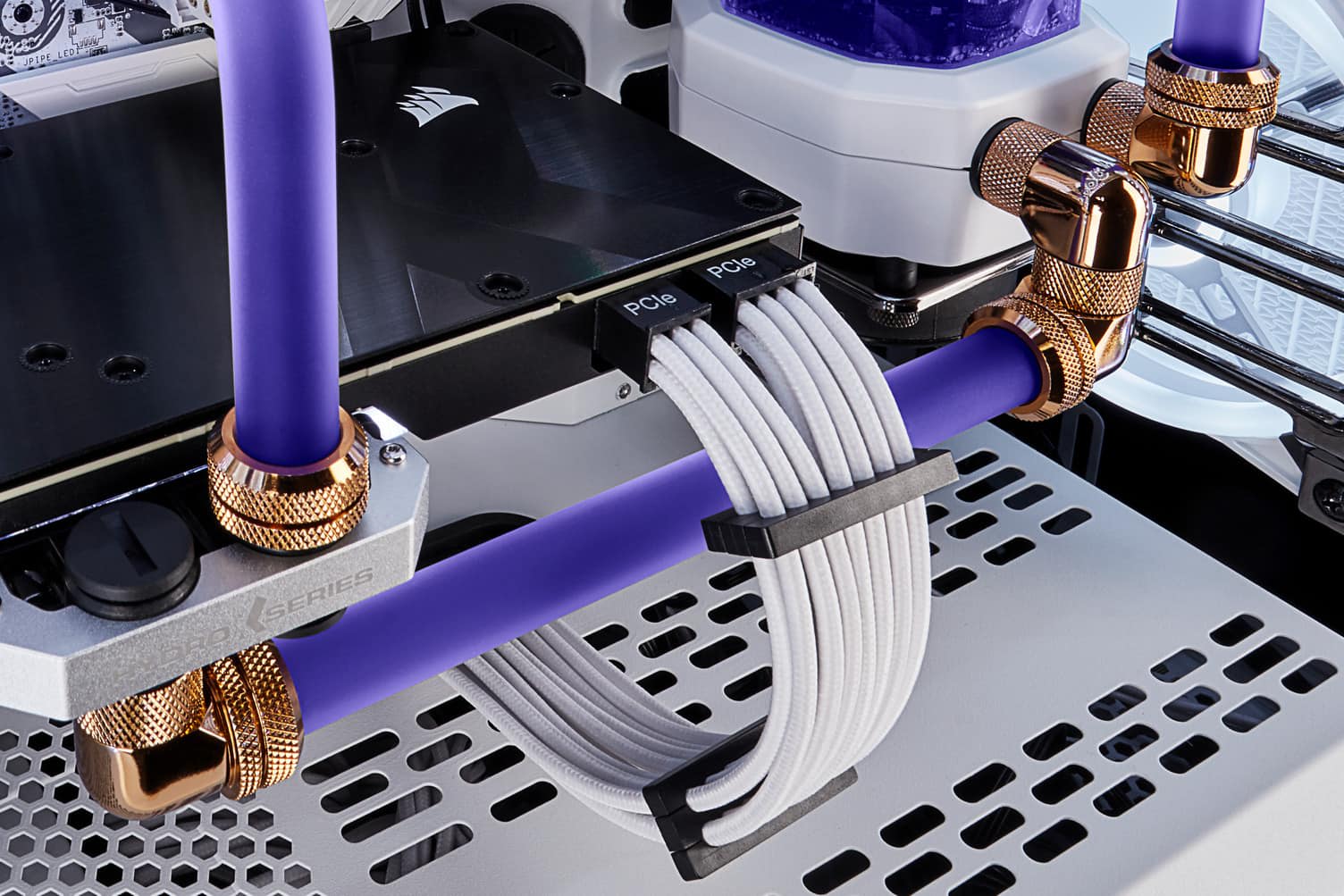
MODULAR PSU AND COLORED CABLES
A fully modular power supply is all but standard these days. That means a power supply unit to which you can freely attach or detach all cables. In the past (and even in some of today's budget segments), it was common to find non-modular PSUs which include permanently embedded cables, or semi-modular, meaning you could remove some cables, but not all.
Generally speaking, a modular PSU will always be easier to build with, since it gives your more freedom and lets you remove cables you're not using in your PC. Reducing the cable clutter makes building and maintenance easier.
Cables are also the only part of the power supply unit that's always visible inside you computer. If you have a specific type of build in mind, you might want to choose a PSU or replacement cables that you're be proud to show off, rather than try to hide.
POWER CONTROL
Now that you've installed the power supply, how can you tell how it's doing?
CORSAIR power supplies with an "i" in their name (HX1000i for example) offer system monitoring through CORSAIR iCUE software, so you can see how fast your fan is spinning and how much power your +12V rail is putting out.
The AXi series of power supplies feature even more monitoring and control, including +12V, +3.3V and +5V, total power out, total power in, and internal temperature of the PSU, and fan speed. You can even adjust the fan curve to automatically change the speed depending on your system's needs.
And of course, any RGB power supplies listed as iCUE-compatible can join in the synchronized lighting effects that you create throughtout your system in iCUE.
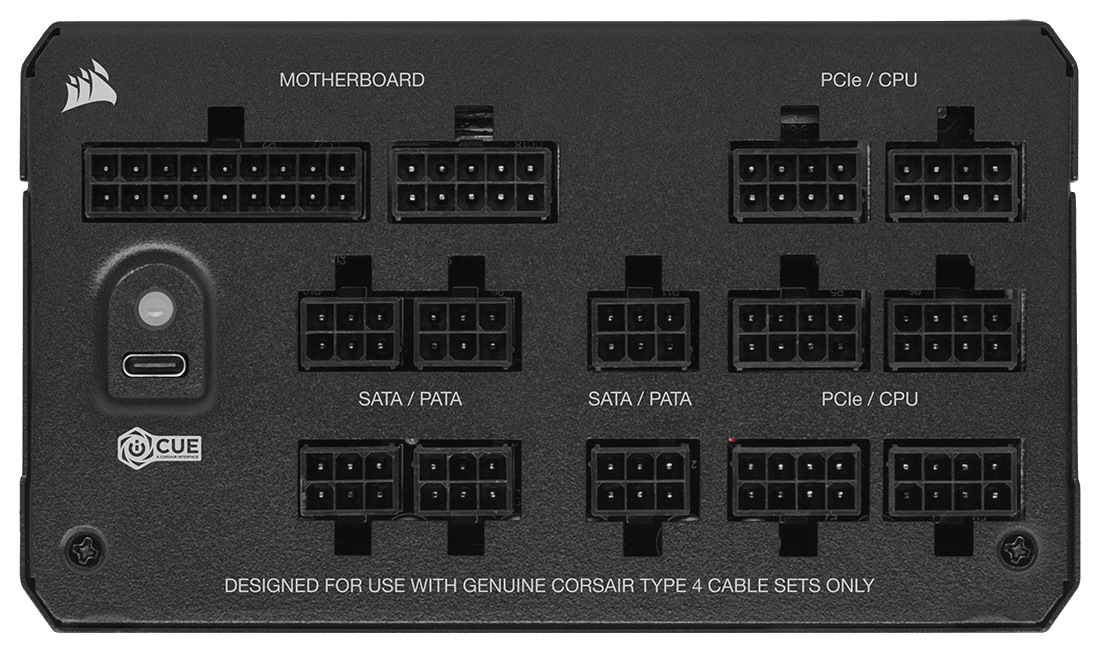
PSU PRODUCT LINES
You've done the research and know what you need from your PSU-now what? It's not always easy to navigate an expansive range of products to pinpoint the one that suits you, so we've done some of the leg work for you. Browse between budget-friendly power supplies, fully tricked-out beasts, and everything in between, to find the best PSU for your needs.
GOOD
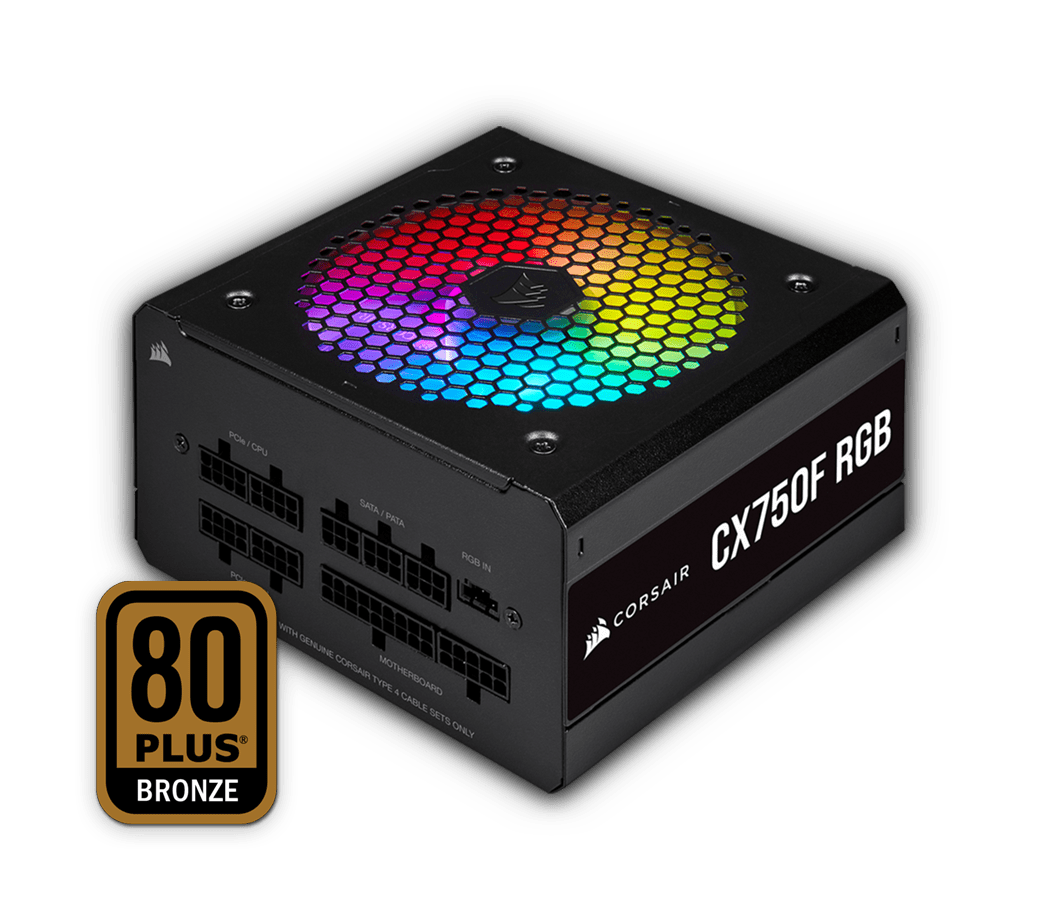
BETTER

ZERO COMPROMISE
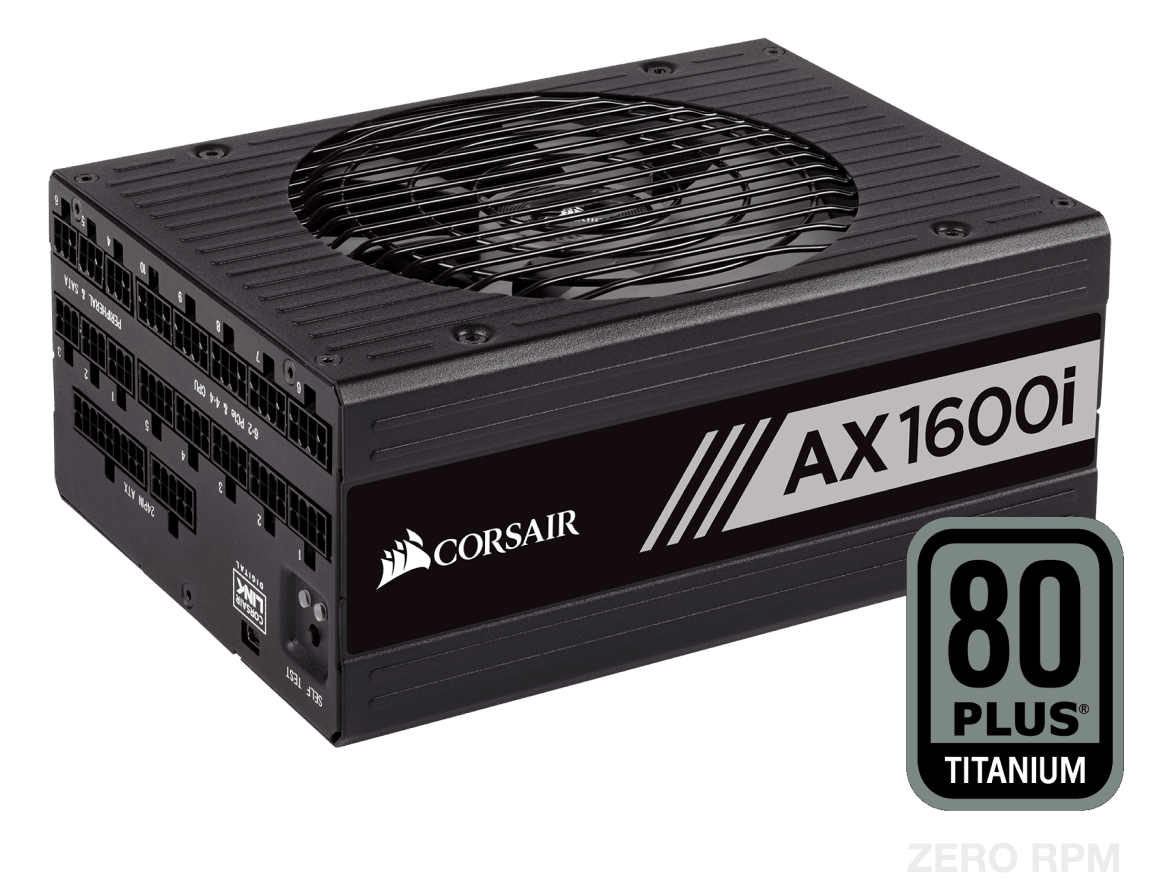
SMALL FORM FACTOR

